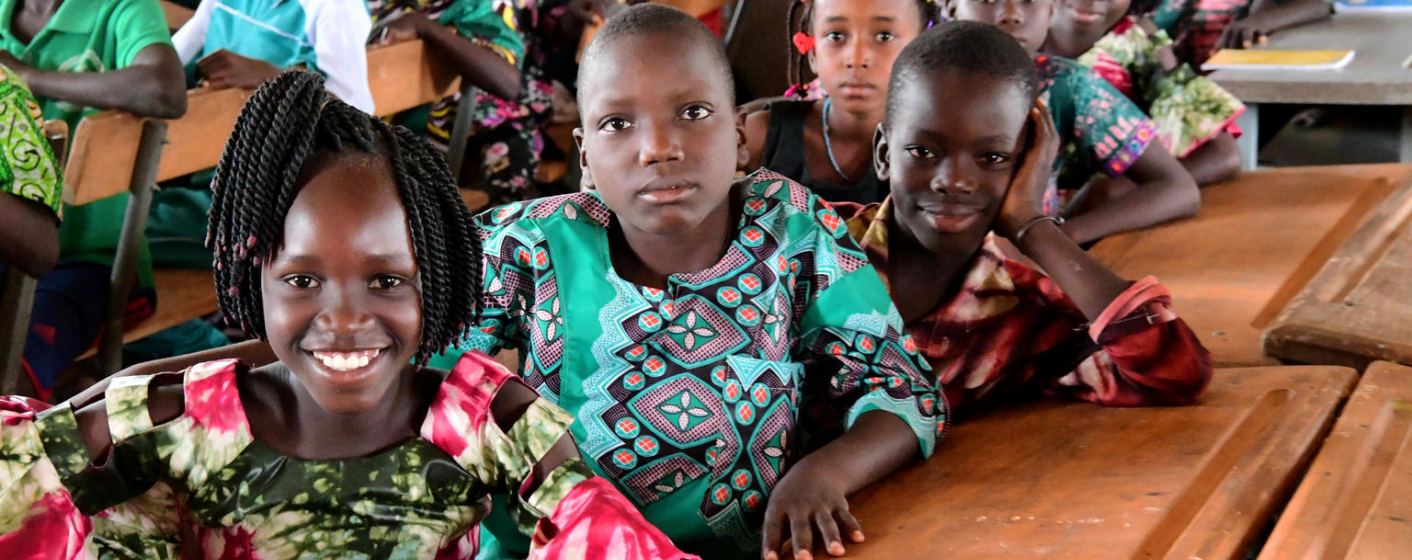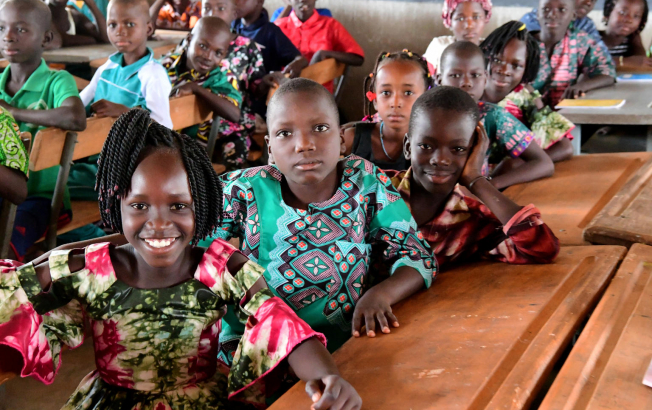Polemag #31 Interview: Kokou Sefako Amelewonou
In our latest edition of IIEP-UNESCO Dakar's news magazine, Polemag #31, which focuses on Achieving inclusive education, discover our Interview with Kokou Sefako Amelewonou, Education Specialist, equitable and inclusive access, UNICEF west and central Africa regional office.
How do you explain the large number of out-of-school children in West and central Africa?
The figures are indeed worrying. UNICEF estimates for 2020 showed that there were around 39 million children and adolescents out of school in the region, or 29 per cent of the primary and lower secondary school population. This is due to a combination of high population growth and poor performance of education systems in some countries in terms of access to education. In the majority of countries, however, the main problem is the ability to retain students in school. Although much progress has been made in enrolment, the goal of universal primary education remains unfinished business in the region, with one in three children not completing primary education in 12 of the 24 countries.
The crises and structural conflicts in some countries in the region are also an aggravating factor in school exclusion. In addition, access remains highly inequitable to the disadvantage of girls in rural areas, and

vulnerable girls and boys in general. Disparities are even more pronounced among children with disabilities and children from the poorest families.
It is worth noting that the majority of so-called ‘out-of-school’ children actually follow alternative learning pathways. Considered non-formal, these training or Koranic education programmes are rarely officially recognised by governments. Consequently, the qualifications they offer do not allow for continuity to higher levels of training in the formal system.
What are the responses to the challenges of equity and inclusion?
To provide a coherent and comprehensive response to the challenges of equity and inclusion, the realities on the ground dictate that schools and alternative learning pathways should be used as platforms to provide integrated services to pupils and learners. The challenge is to address the multiple barriers faced by children in terms of health and nutrition, vitamin A supplementation, access to water, and menstrual hygiene.
To do this, countries with the support of their partners need to develop education policies and scale up effective intervention strategies that use schools as a platform for implementing multi-sectoral approaches that address the root causes of school exclusion, particularly for children from disadvantaged backgrounds.
It is also about enabling all children to acquire not only strong basic literacy and numeracy skills, but also to develop other skills early on: social-emotional skills through play-based learning to prepare children for primary school, and also practical, livelihood skills. Investing in pre-school and primary school learning is a key issue for raising achievement and reducing drop-out.
To reduce vulnerability and exclusion, it is essential to build the capacity of actors in conflict and risk analysis, and in crisis-sensitive education planning. Among other responses, the expansion of Koranic school curricula beyond religious education should be considered, improving its quality and ensuring a bridge to the formal education system. Similarly, improving the availability of and access to disaggregated data on children and adolescents with disabilities is a key prerequisite for advancing inclusive education.
Finally, building bridges between formal and non-formal approaches – and advocating for formal recognition of non-formal learning opportunities through certification of training programmes – will help improve the employability of young people, including out-of-school adolescents.
What to offer young people outside the education and training system?
On average, only 47 per cent of adolescents in west and central Africa have completed lower secondary education by 2020. Several interventions can be considered to help develop the skills of out-of-school adolescents.
The first step is to ensure the acquisition of basic literacy and numeracy skills for those who have never been to school, or who have been out of school for a relatively long period of time. In addition to the traditional approach in learning centres, other modalities can be used to promote education for all, such as the use of television, radio, or digital platforms. Inclusive education must also apply to alternative learning programmes, which should be based more on a competency-based approach.
Developing the digital skills of these young people and their ability to use technology is an important issue. It is therefore necessary to identify appropriate digital solutions that can enhance the effectiveness of alternative learning pathways. For older people, efforts should focus on supporting formal and non-formal programmes that enable them to make a successful transition from training to employment.


